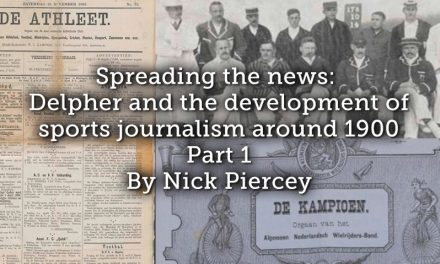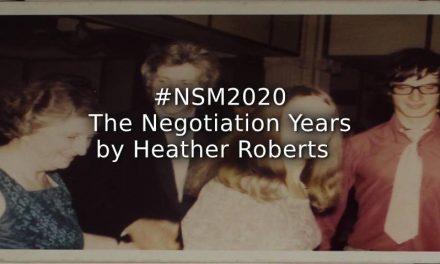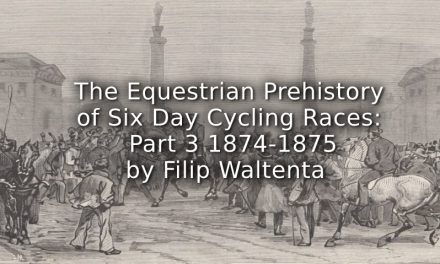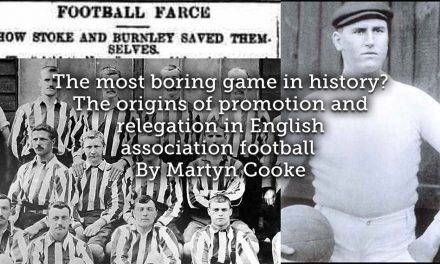The author would like to express thanks to: Luigi and Francesco Ferrari for the images taken from Archivio personale Giovanna Boccalini Barcellona; to Valeria Toso for the image taken from her personal archive; to Paolo Gilardi for the image taken from Archivio personale Marta Boccalini. Thanks also to Giancarlo Salvarani for his father’s picture.
PLEASE NOTE – Express permission is required to reproduce ANY of the images taken from these 2 personal archives – please contact Playing Pasts or the author for more details.
To read the previous articles in this series please see the links below –
Part 1: Part 2: Part 3: Part 4: Part 5: Part 6: Part 7:
In Part 7 I showed the sporting side of Giovanna Boccalini Barcellona, as emerged from the files of her personal archive, discovered in Summer 2020; in Part 8, I’m going to start to present further results from this wonderful resource. As well as Giovanna’s personal archive, I had also the opportunity to read Giuseppe’s files at the Tribunale Speciale (‘Special Court for crimes against the Fascist regime’) Archives, in Rome.
First of all, a comparison between Boccalini’s sisters and two groups of relatives can help us in understanding the open-mindedness of her family, in which the 5 sisters had the opportunity to practice any kind of sports they wanted to. Let’s take their cousins who still lived in Lodi, the Salvarani family: Emilio (b. 1914), Bruno (b. 1916), Riccardo (b. 1918) played in Stelvio, a local football team linked to the Catholic parish led by don Luigi Savarè, a very famous priest of the time. Yet her younger sister Onorina (b. 1923) never played football (of course), neither any other kind of sports: probably, the small-town mentality of Lodi was very different from the one in which her older cousins Boccalini faced in such a big city like Milan.
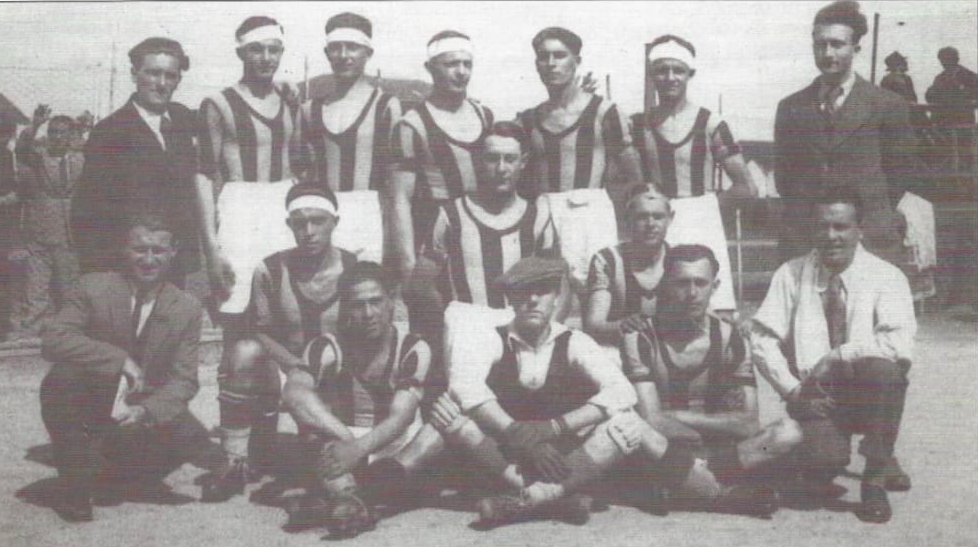
The Stelvio team [1934]
Emilio Salvarani [standing 1st left] Bruno [3rd ] Riccardo [4th]
Source: Archivio personale Giancarlo Salvarani.
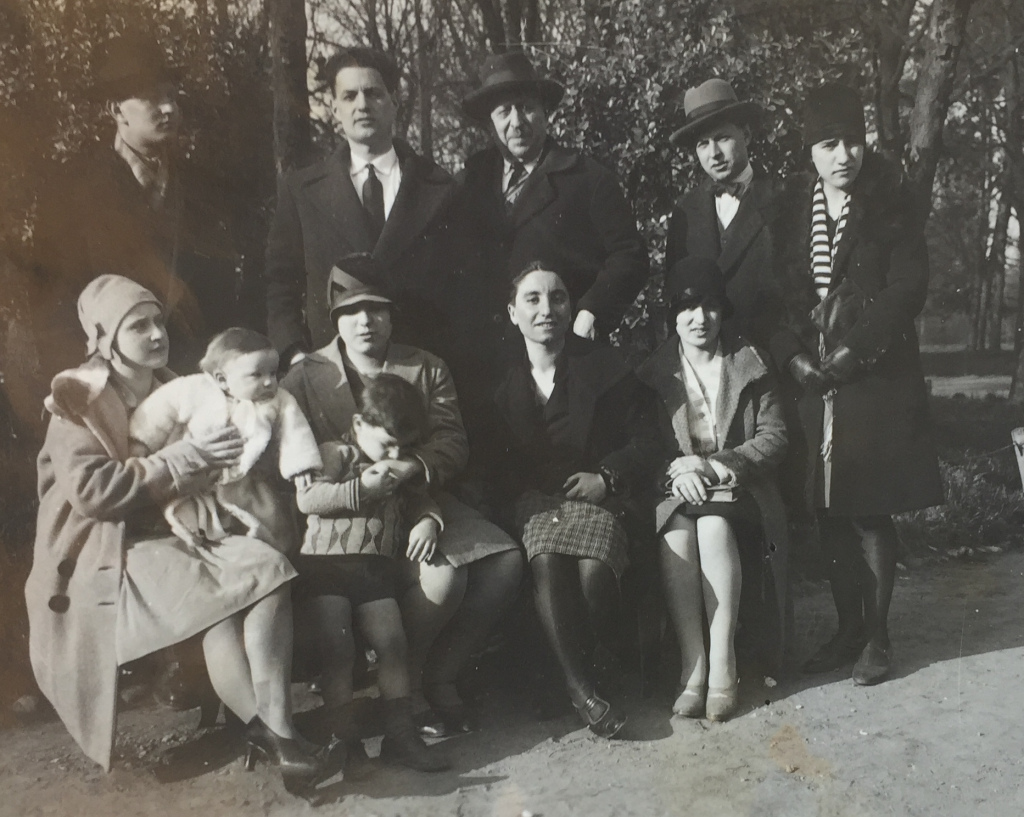
Milan, 29 March 1929
the Barcellona family in a Milanese park, with some Boccalini’s sisters
Standing, from left: Vincenzo, or Salvatore Barcellona [Giuseppe’s brother]; Calogero Barcellona [Giuseppe’s brother]; Pasquale Barcellona’s; Giuseppe Barcellona; Marta Boccalini
Seated, from the left: unknown [one of Giuseppe’s sisters?], holding baby Grazia Barcellona; a second unkown woman [another of Giuseppe’s sisters?)] holding Giacomo “Popi” Barcellona; Luisa Boccalini; a third unknown woman
Source: Archivio privato Marta Boccalini.
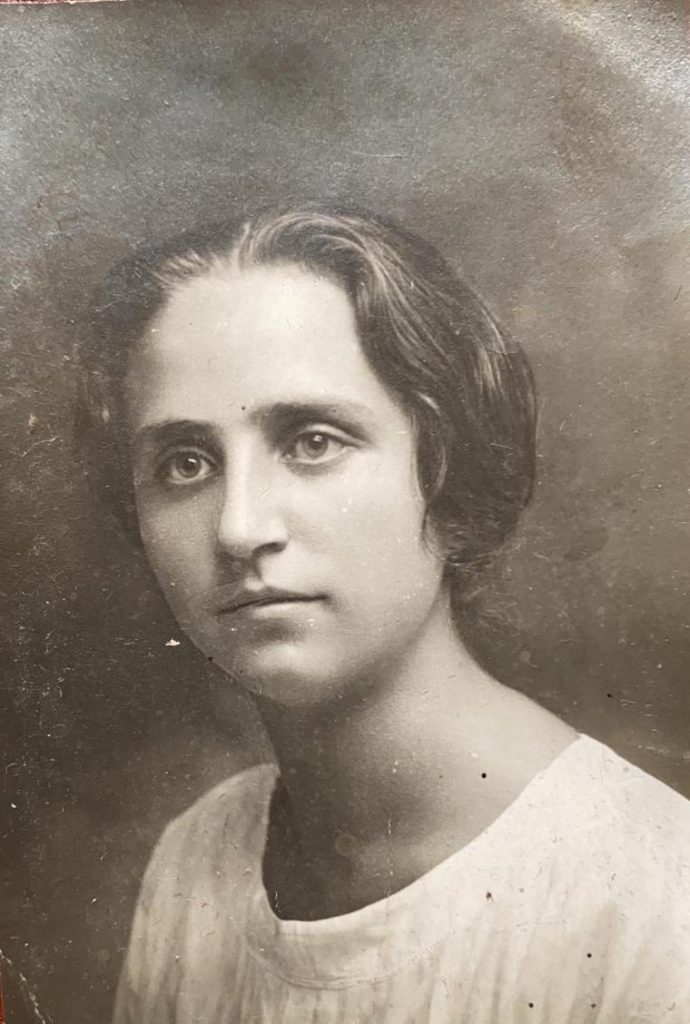
Teresa Boccalini [1926]
Source: Archivio privato Valeria Toso
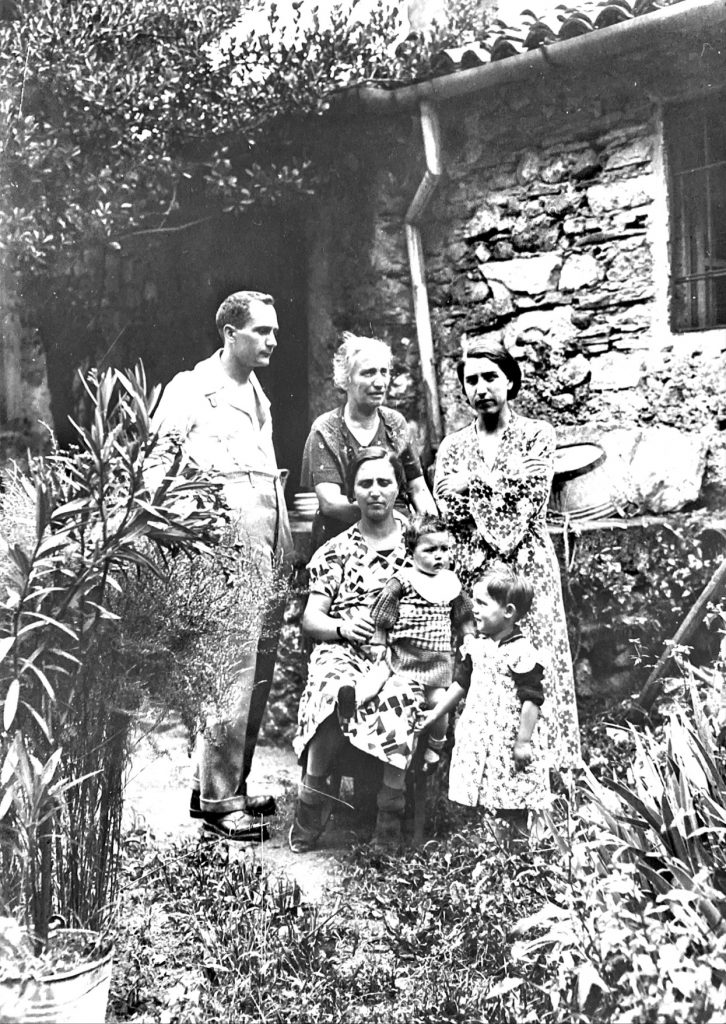
Three generations in one photo
From left: Aldo Ferrari; Antonietta Salvarani Boccalini [mother of Marta and Teresa]; calciatrice Marta Boccalini; Teresa Boccalini Ferrari [pregnant with her third daughter Luisa] & holding Mirella Ferrari; Giuliana Ferrari [Valeria Toso’s mother]
Source: Archivio privato Valeria Toso.
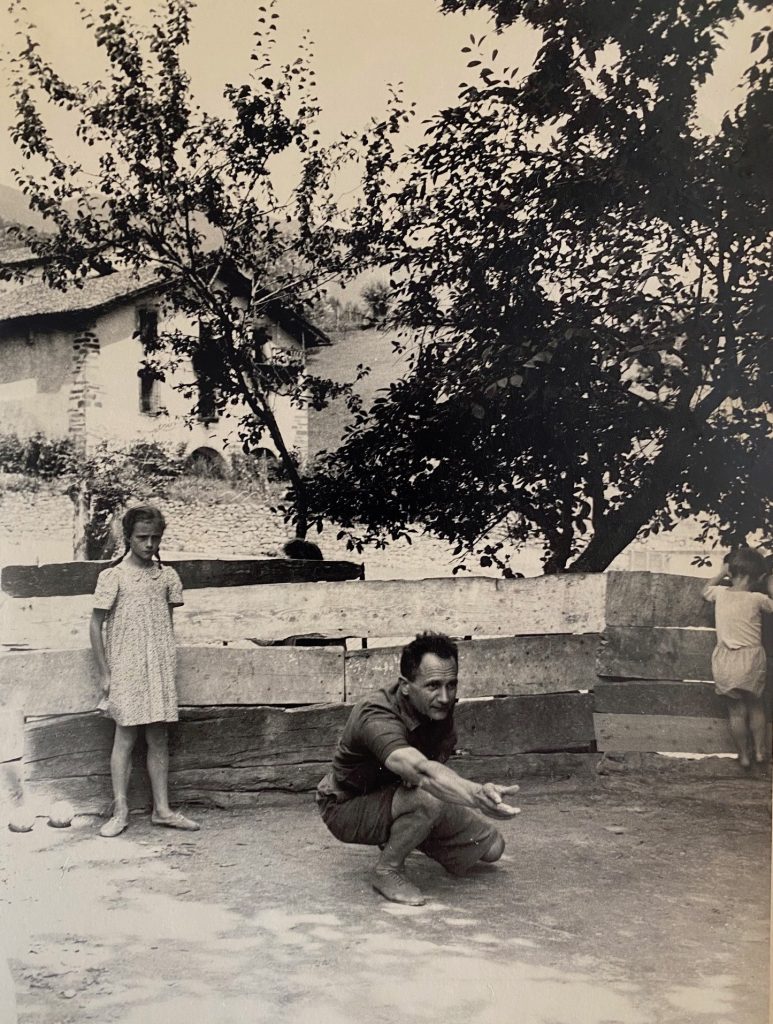
Aldo Ferrari playing bocce, after WW2
His third daughter Luisa is attentively watching him while his fourth son Leonardo seems to have no interest in the game …
Source: Archivio privato Valeria Toso
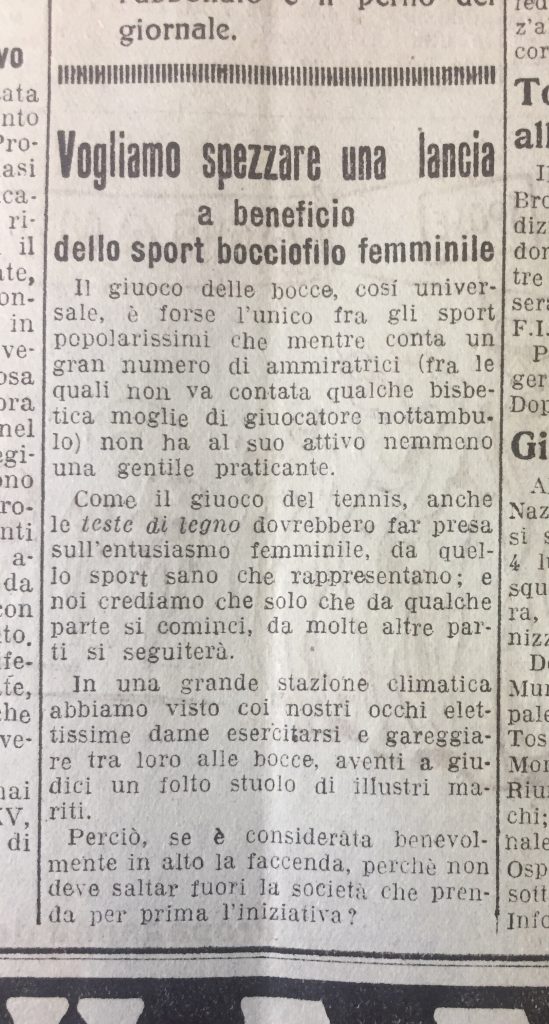
The practice of women’s bocce in early 20th century Italy remains a rather mysterious object of study for scholar of Sport History
This rare clipping from Milanese sports newspaper Lo Schermo Sportivo [1937] entitled
“We’d like to strike a blow for women’s bocce”
The article begins: “Bocce, a sport so widespread, is probably the one sport that, despite having a lot of supporters [but not those the bad-tempered wives of the night time gambler], has no female athlete, at all”
After reporting that while on holiday he watched some ladies playing under the gaze of their husbands, the author asks: “why would any sports club consider this initiative”
Source: Lo Schermo Sportivo, 31/03/1937, p. 3.
Giovanna unlike her sister Teresa, didn’t share the footballing love for AC Milan, she only had a passion for Ambrosiana-Inter, which she shared with her beloved husband Giuseppe. During his confinement on the Tremiti islands [August 1933 – November 1934], they used to write to each other … the Neroazzurri is one of the main topics of their correspondence. Thanks to an example, we can easily see how for them football fandom was not separated from, but helped with their marital relationship.
On November 12th, 1933, Giovanna describes how the Ambrosiana-Inter succeeded in beating the defending champions Juventus:
I went to the Arena stadium to attend the match Ambrosiana-Inter vs. FC Juventus, and I watched one of the most wonderful football matches in a very long time. Juventus are such a great team, yet what a beauty Ambrosiana were! I was impressed by Juventus’ players Monti, Rosetta, and Calligaris. Nevertheless, their strikers were united, Borel II is a very good player, but nothing compared to Meazza. I was impressed by Ambrosiana’s defenders (although [goalkeeper] Ceresoli could not concede the second goal), Faccio (who never get exhausted running), strikers (but Serantoni’s absence had an impact!). This year only Ambrosiana have been able to score 3 goals against Juventus. Nevertheless, it wasn’t a match ruled by Ambrosiana, there was a balance of forces: during the first half there was a little Juventus supremacy, then in the second half the same for Ambrosiana.
Some days later, Giovanna confesses to Giuseppe:
Take a look at this, Peppino [=Giuseppe’s nickname]: Ambrosiana-Inter vs. Juventus was the first Serie A match I’ve attended this season, and I went there only to have the opportunity to write you about it later. Yet remembering more and more cruelly what I’ve lost is not fun, for me! I guess that I will hardly return to the stadium
In Giovanna’s mind, the link between attending Ambrosiana’s matches and the memory of Giuseppe was so strong that, on the occasion of the return match, played in Turin on April 1st, 1934, she lies to her friends and shut herself up at home:
…to spend the whole day with you, or rather with your memory.
Some days later, Giuseppe answers:
I’m sorry you didn’t go to Turin: I’m reading in the newspapers that the match was so interesting, and the joy after that penalty save would have made the journey worthwhile for you
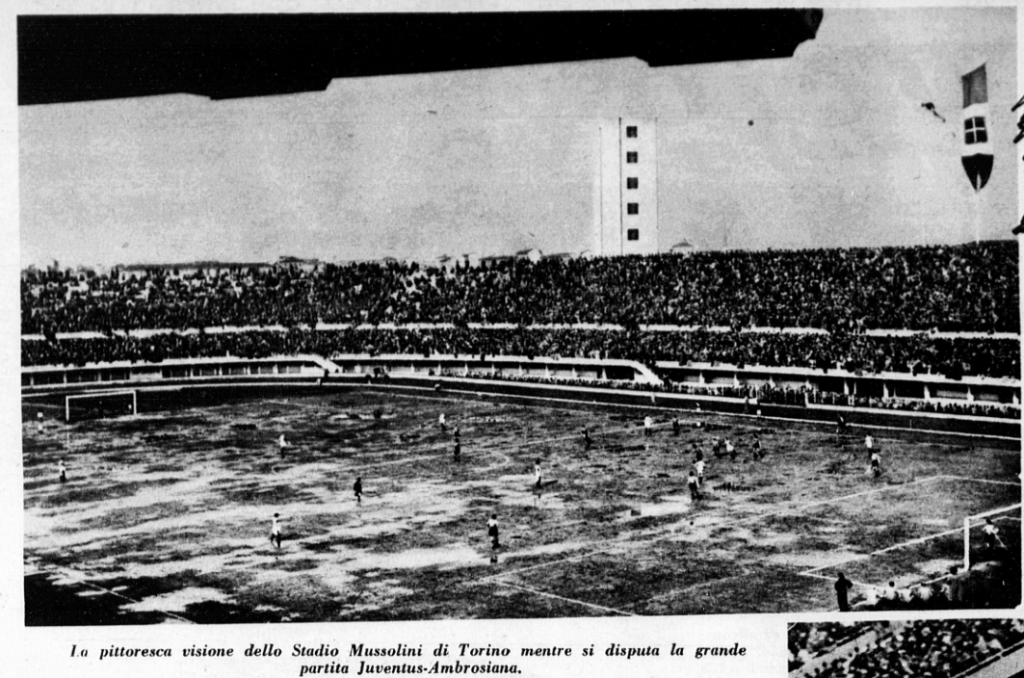
The return match was played in the new brand stadium deadicated to Mussolini [today the Stadio Olimpico Grande Torino, home of FC Torino]
Source: La Domenica Sportiva, 08/04/1934, p. 8.
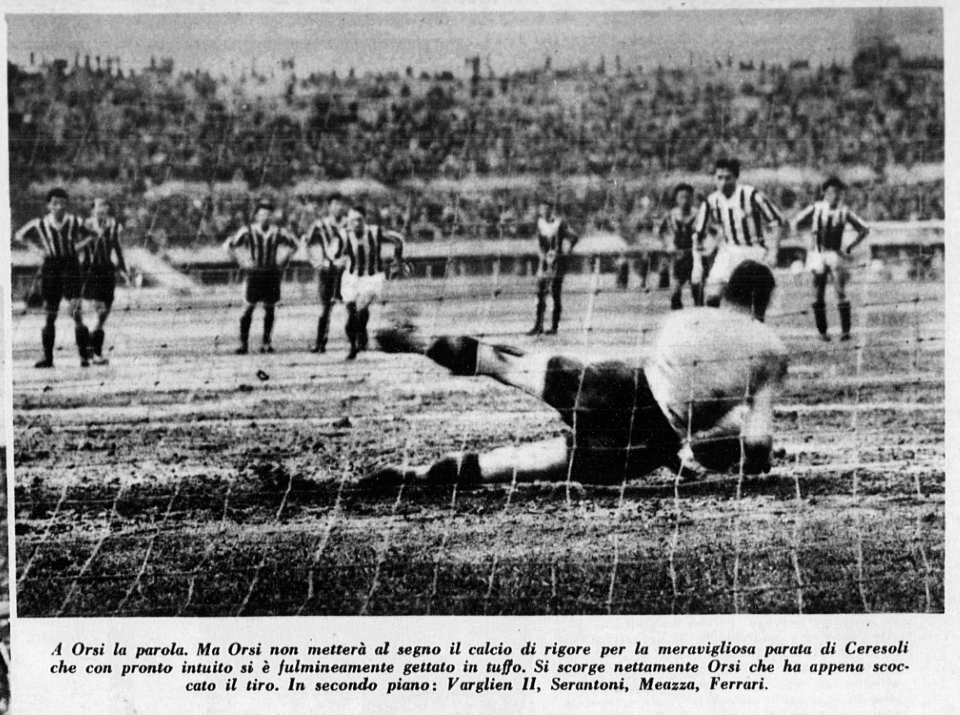
Goalkeeper Ceresoli saving Orsi’ penalty, during Juventus vs. Ambrosiana-Inter 0-0
Source: La Domenica Sportiva, 08/04/1934, p. 9.
Giuseppe was so well informed because Giovanna and Fasolino [a Giuseppe friend and colleague, offered Giovanna a lift to the Turin match] used to send to Giuseppe a lot of sports magazine and newspapers, such as La Gazzetta Dello Sport, Guerin Sportivo, La Domenica Sportiva, and Il Calcio Illustrato. Although none of them have been preserved in Giovanna’s archive, fortunately, two wonderful items did. They are both very interesting items for followers of History of Sports Fandom.
The first is a 1933/1934 Serie A calendarietto ‘little calendar’ that Giovanna sent to her husband in order to allow him to follow the Ambrosiana-Inter matches: it seemed to have been a very useful gift!
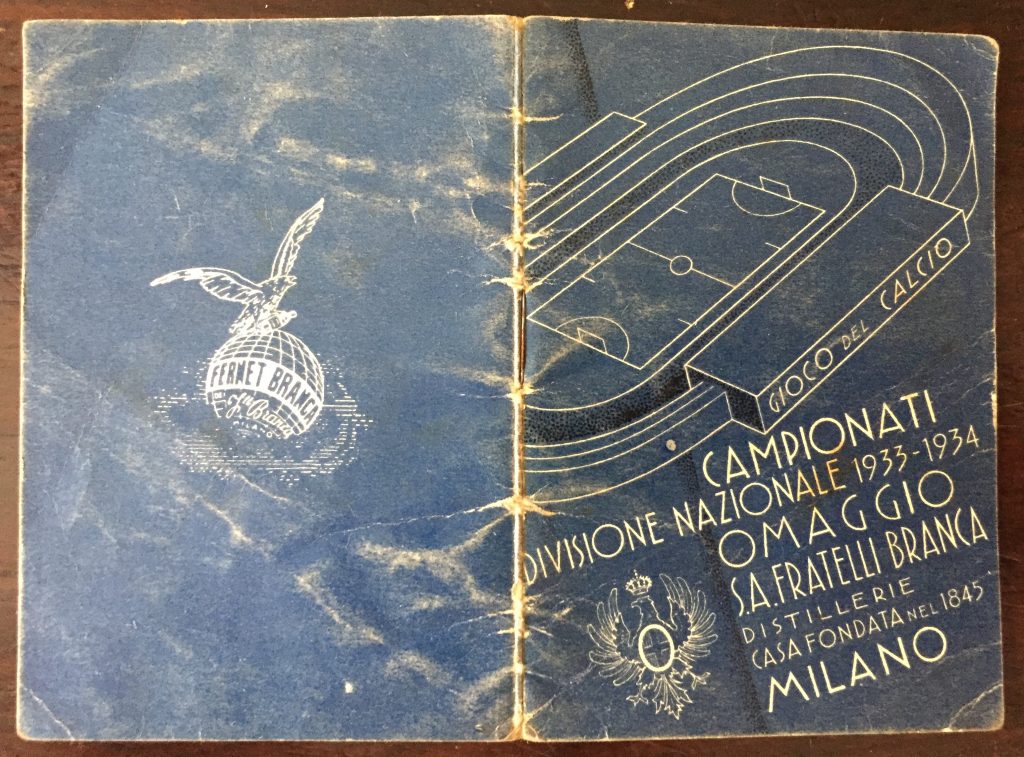
The cover pages of the calendarietto
It was a free gift for customers of the Fratelli Branca distillery
During that time, these kind of advertisement by distilleries and wine shops were common
Remember the Cinzano shirts given to the GFC players by their President Ugo Cardosi? [see http://bit.ly/35jX8V5]
Source: Archivio privato Giovanna Boccalini Barcellona.
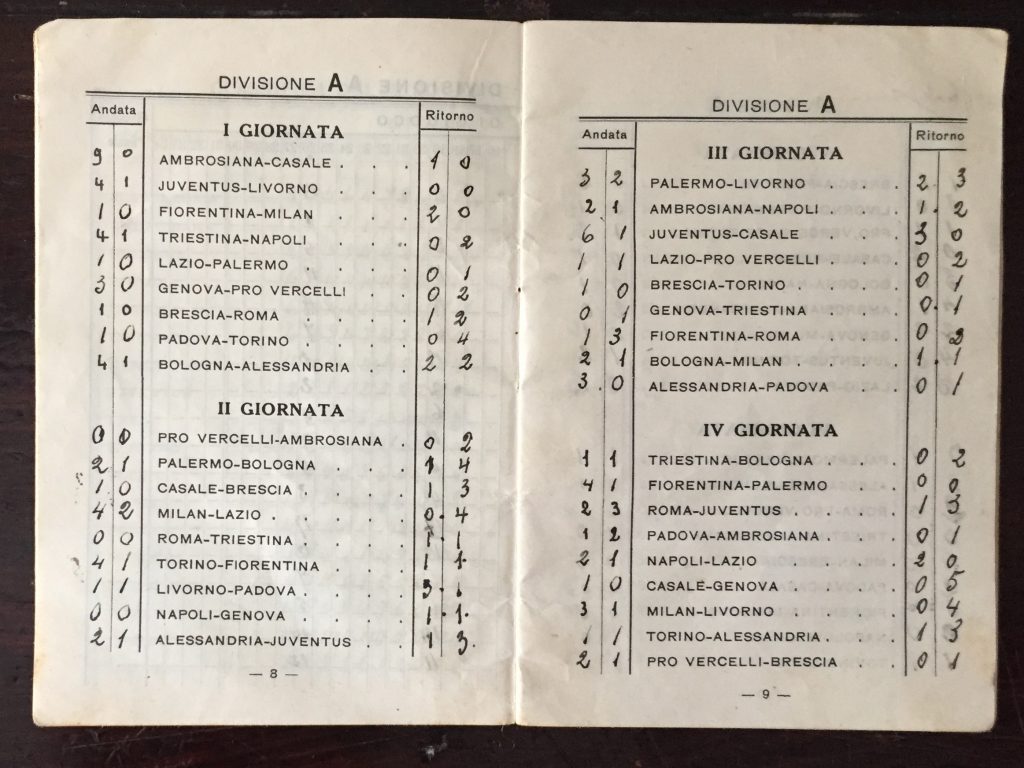
The gift was from Giovanna, but the writing was from Giuseppe
Source: Archivio privato Giovanna Boccalini Barcellona.
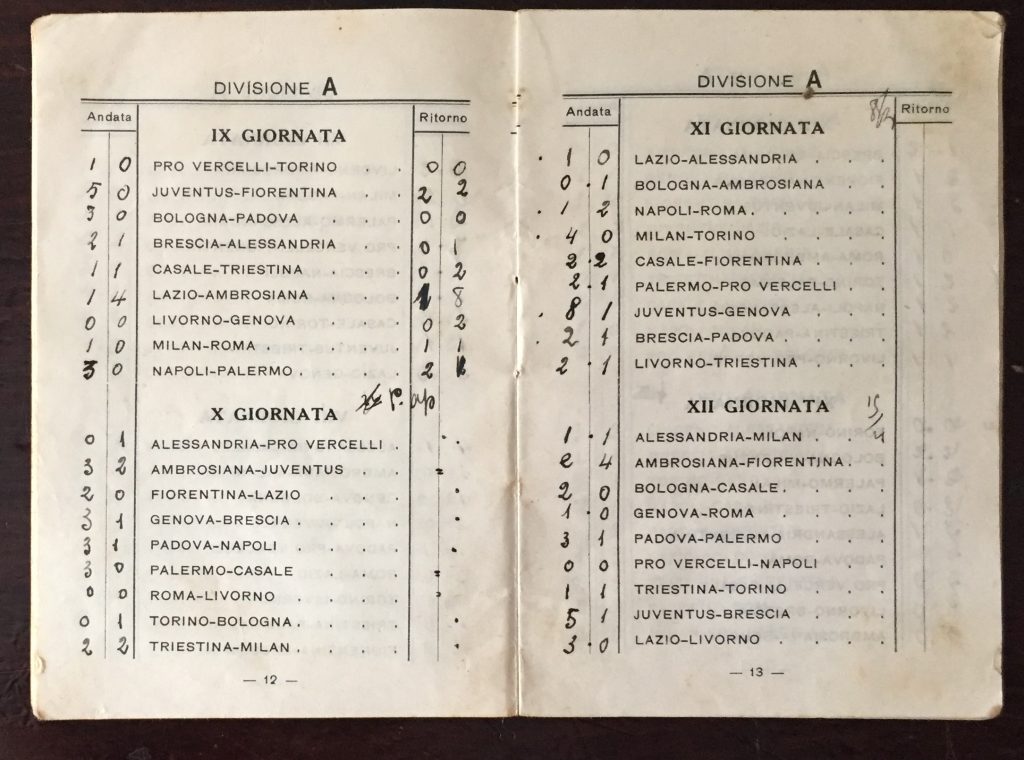
As you can see, some return matches are not filled in; yet some of them have some dates
is this another way to mark the endless time of Giuseppe’s exile?
Source: Archivio privato Giovanna Boccalini Barcellona.
Inside the calendarietto we can still see a two-page manuscript, full of combinations and calculations. Just like all the Neroazzurri supporters in 1933/1934, Giuseppe was dreaming of a scudetto, after a 3-years of Juventus dominion: but during the last few matches, Ambrosiana-Inter would fall down, thus allowing Juventus their 4th consecutive national title.
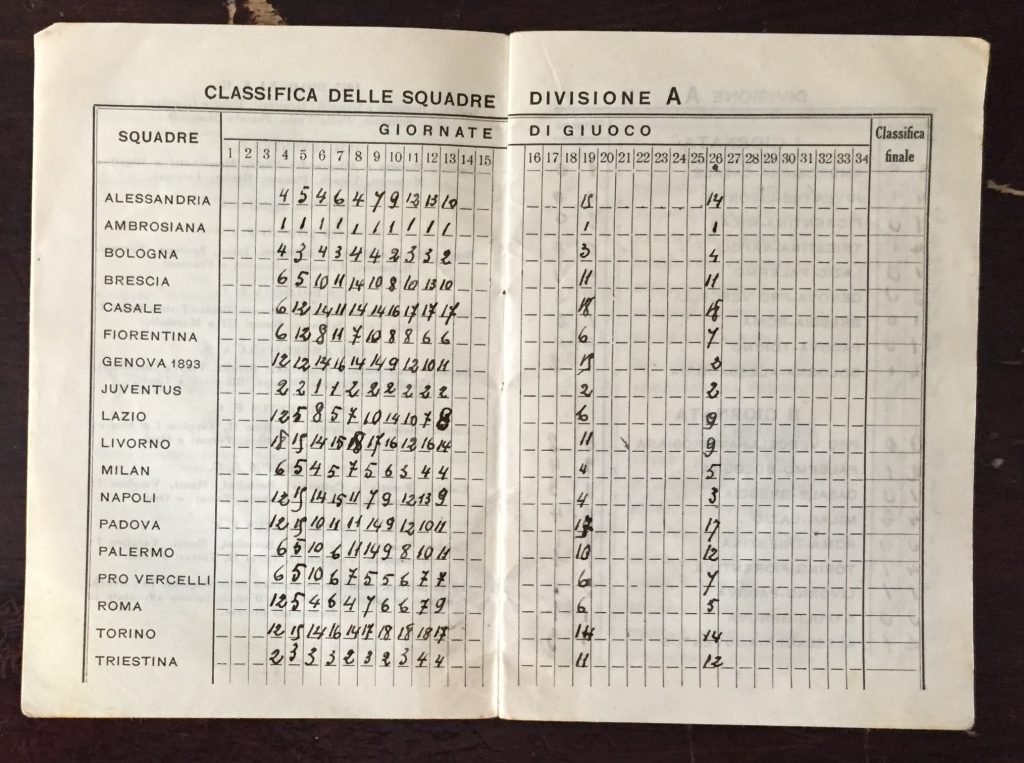
As you can see, Ambrosiana-Inter preserved it’s top position for the most of the season … Juventus took over in the 30th round of 34
Source: Archivio privato Giovanna Boccalini Barcellona.
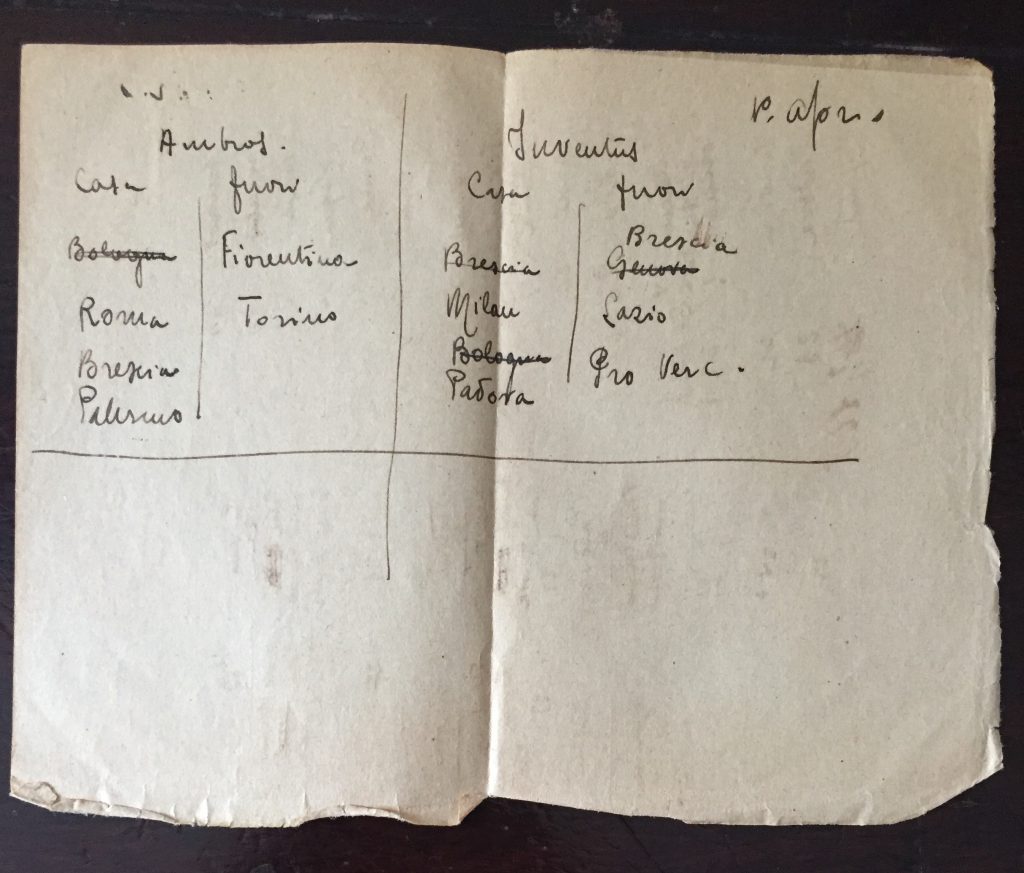
The second page of Giuseppe’s calculations, devoted to the final neck-and-neck race between Ambrosiana and Juventus
He wrote the first version before the 28th round, in which Ambrosiana-Inter played Bologna and Juventus played Genoa: they both won 2-0. “Casa” means ‘home’, “fuori” ‘away’
Source: Archivio privato Giovanna Boccalini Barcellona.
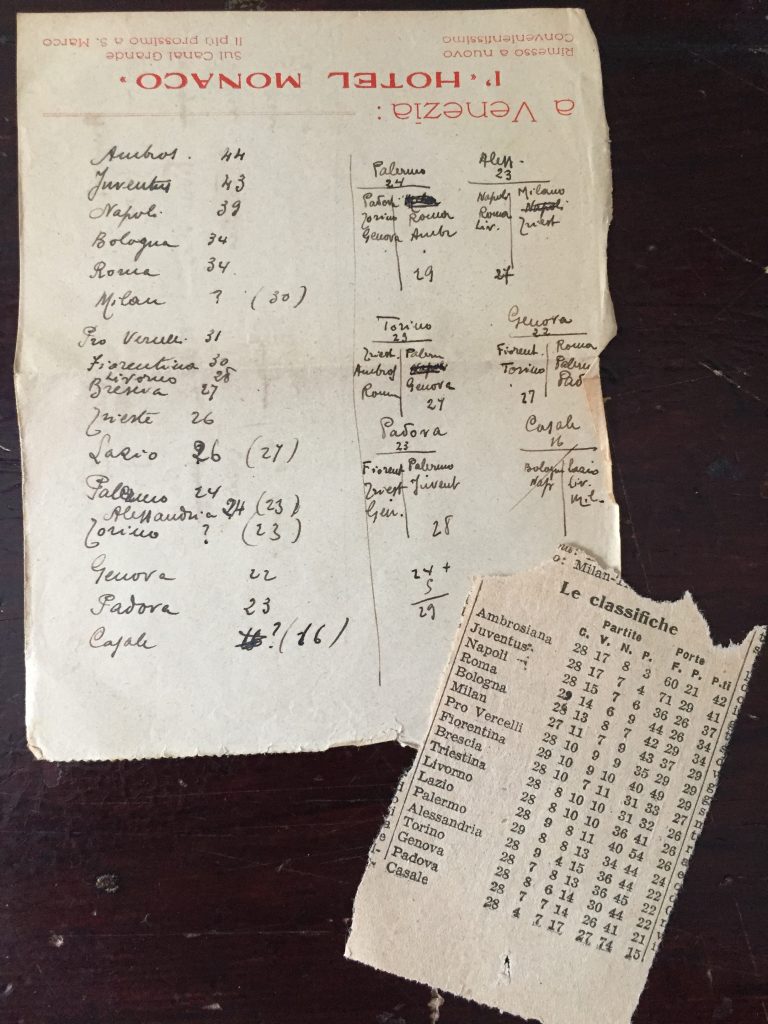
The newspaper clipping is from 29th round: Ambrosiana have 43 points
Giuseppe’s handwritten version is from 30th round – where Ambrosiana have 44 points, after drawing with Roma (0-0)
What he didn’t know was that meanwhile Juventus had won 0-4 against Milan (see the “?”), gaining the 2 points that made the overhaul (from 43 to 45 points)
On the right, Giuseppe’s calculations of the worse teams
At the end of the season, Padova, Genoa, and Casale would be relegated to Serie B
Source: Archivio privato Giovanna Boccalini Barcellona.
Giuseppe’s love for the Neroazzurri was something so clear that even outside his family, in Spring the 1934, all his friends and colleagues knew.
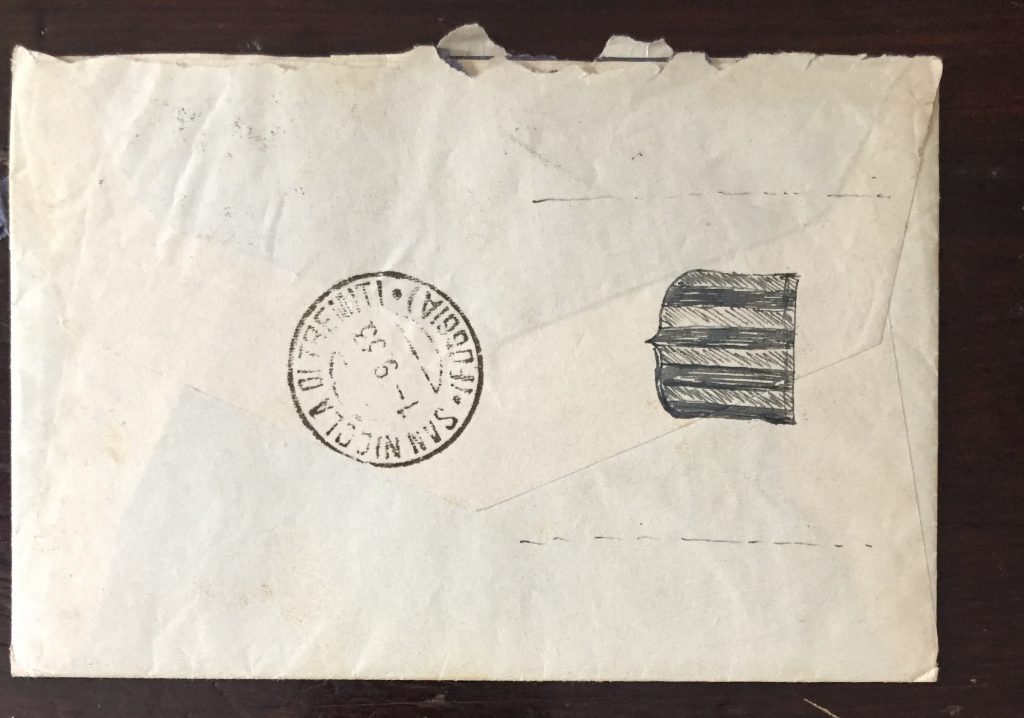
Someone [the sender, or Giuseppe?] draw this little black-and-blue shield on the reverse of a letter to Giuseppe
Source: Archivio privato Giovanna Boccalini Barcellona.
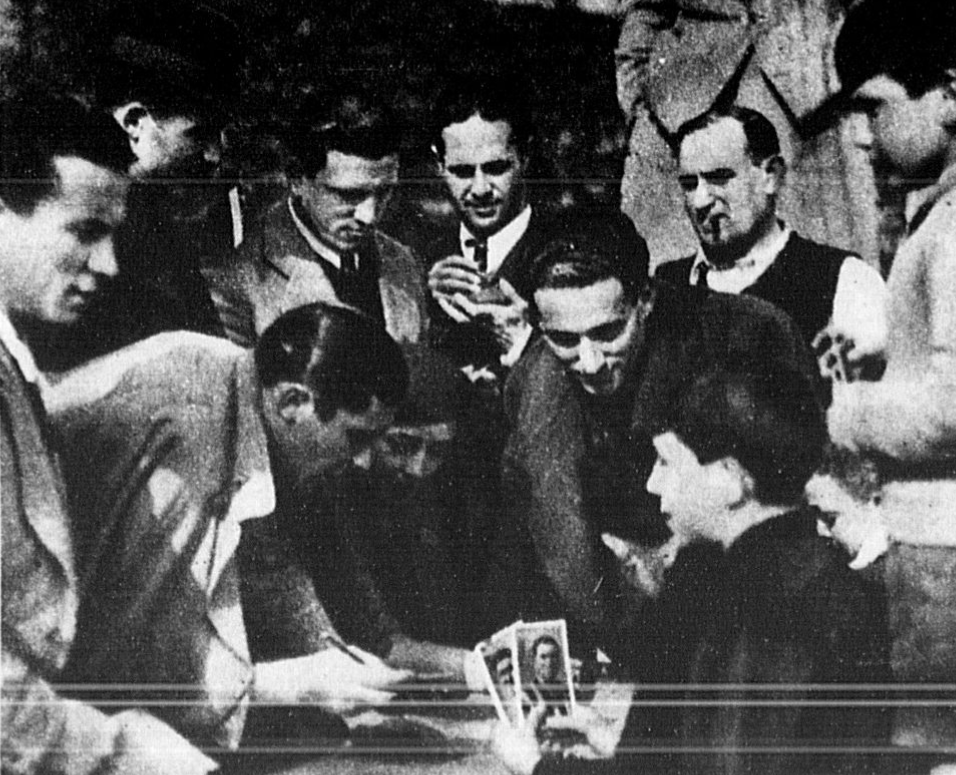
Please note the size of the 2 postcards the little boy is holding, while standing in front of his footballing hero Giuseppe Meazza
Who was probably autographing the one depicting himself
Please note the chronology: this picture was published in mid-March 1934
Source: La Domenica Sportiva, 18/03/1934, p. 6.
On 17 March 1934, probably because two days later would be his patron name’s day, they bought a complete set of Ambrosiana-Inter footballers postcards. Then each one of them wrote wishes to their far away confined friend. On Sunday 18 March 1934 the Neroazzurri went to Florence, to play against Fiorentina; a few days later, on March 21th, Meazza and all his team-mates arrived on the Tremiti islands, in the form of postcards. Giuseppe could hold, in his hands, the whole team, feeling all the love of his friends towards him, in this footballing gift.
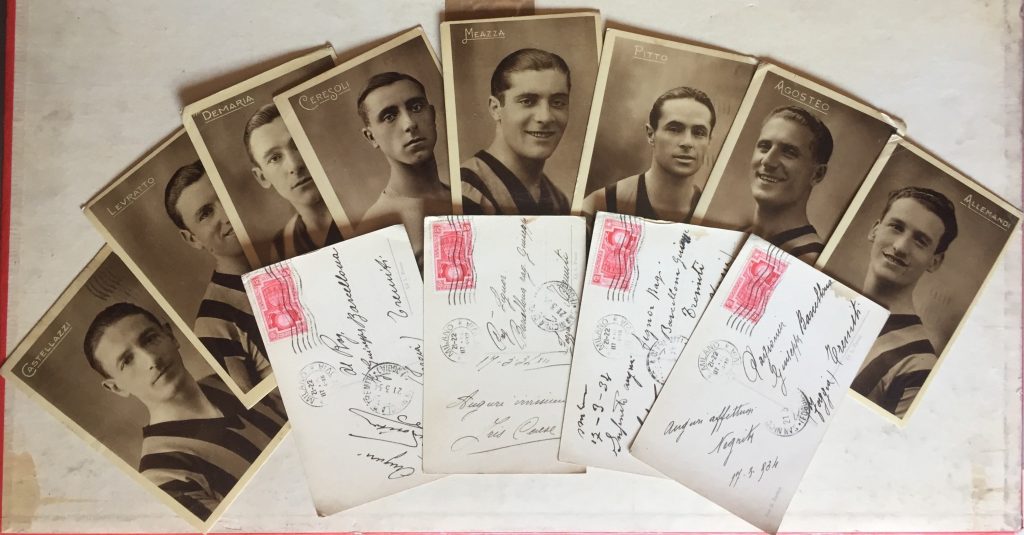
The series of postcards, with signed best wishes to Giuseppe, some written on the front and others on the back
The postmarks help to reconstruct the chronology
Source: Archivio privato Giovanna Boccalini Barcellona.
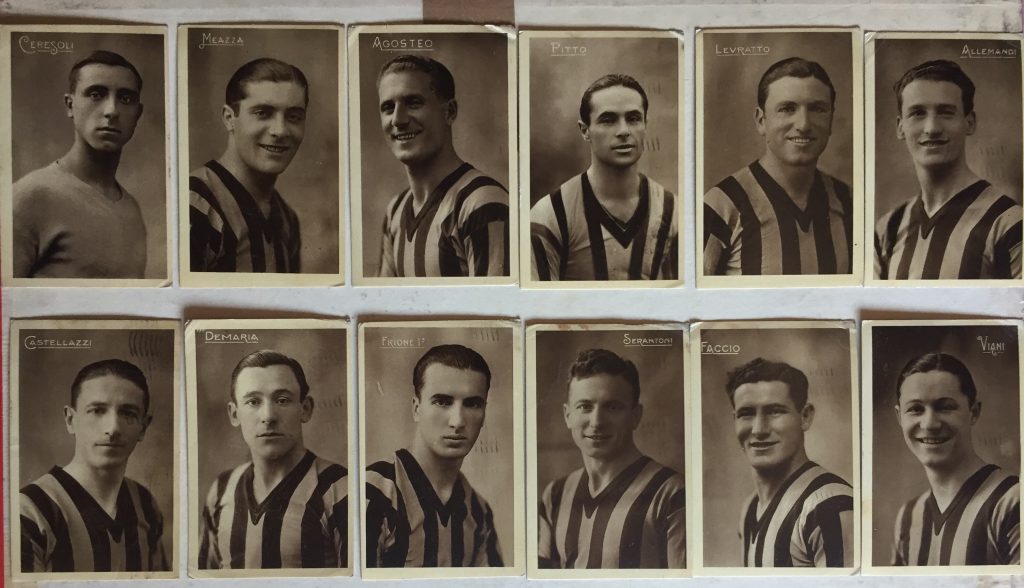
The complete series of postcards
Source: Archivio privato Giovanna Boccalini Barcellona.
To read Part 9 Click HERE
Article © of Marco Giani
For more images from the 1933/1934 calendarietto, see
https://sorelleboccalini.wordpress.com/extra_il-calendarietto-della-serie-a-1933-1934/

![“And then we were Boycotted”<br>New Discoveries about the Birth of Women’s Football in Italy [1933] <br> Part 8](https://www.playingpasts.co.uk/wp-content/uploads/2020/12/Boycotted-Marco-Part-8.jpg)
